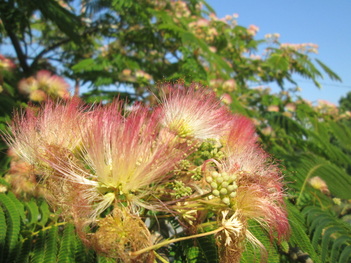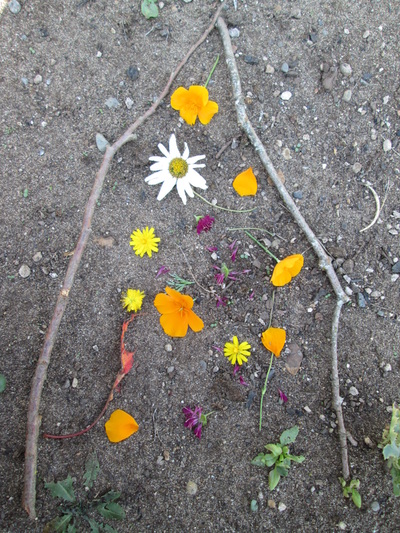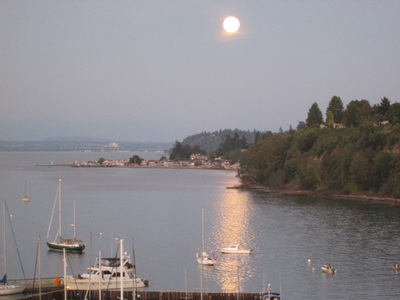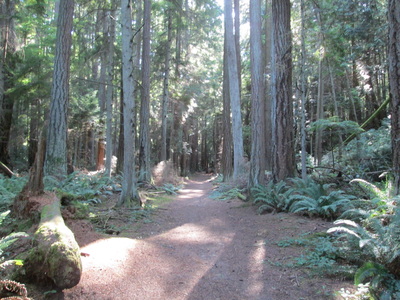
What a rich two weeks! Saturday, August 16, 2014, I was invited to participate in a two-hour seminar and brainstorm session with the co-founder of Children & Nature Network, Martin LeBlanc. The fact I was among 25 professional educators and community leaders (I am not either), and ended up being the sole person representing the topic of "Health" was a bit serendipitous? Odd? I know many experienced leaders were invited but could not make it. Instead I showed up. At any rate, the wonderful room of people drew up an action plan of 12 concrete steps to make in my county to facilitate more nature connection opportunities for youth. Being there allowed me a brief glimpse into a world that lives my passions.
My book, Naturography, will be on sale at Greenbank Farm thanks to women I met at the seminar who felt it captured their mission well.
The most eye-opening takeaways for me were:
Meaning Making
All humans make meaning. It's what we do, and each of us assigns meaning to exactly the same event or object or relationship differently. Identifying our life's purposes (I don't believe we have just one), remaining aware of our sensory aliveness in the moment (what we need to work harder at as a nature disconnected society), and finding meaning in our suffering are important ways meaning prevents us from giving up, deciding life is worthless, or throwing in the towel.
My psychology readings this week all seemed to echo this theme.
My book, Naturography, will be on sale at Greenbank Farm thanks to women I met at the seminar who felt it captured their mission well.
The most eye-opening takeaways for me were:
- Child abductions are down 1% since 1970, yet this is most parents worst fear preventing a child from going outdoors.
- My rural county has 470+ nonprofit organizations in it! No wonder it seems everyone and their grandmother volunteers in some way.
- My county is super abundant in natural resources, yet facilitating conscious nature connection STILL is a challenge.
- Despite the most homework, school testing, and structured childhoods, the average screen time for youth today is 50 hours a week! I squared that with my own teen by calculating her habits with her, and she ranks at about 10 hours during the school year. Phew!
Meaning Making
All humans make meaning. It's what we do, and each of us assigns meaning to exactly the same event or object or relationship differently. Identifying our life's purposes (I don't believe we have just one), remaining aware of our sensory aliveness in the moment (what we need to work harder at as a nature disconnected society), and finding meaning in our suffering are important ways meaning prevents us from giving up, deciding life is worthless, or throwing in the towel.
My psychology readings this week all seemed to echo this theme.
"We can discover this meaning in life in three different ways: (1) by creating a work or doing a deed; (2) by experiencing something or encountering someone; and (3) by the attitude we take toward unavoidable suffering."
"Once an individual's search for a meaning is successful, it not only renders him happy but also gives him the capability to cope with suffering." [1]
For me, the pursuit of learning to articulate what I have felt intuitively all my life - an intense connection to the natural world as my "go to" space to cope with and heal from suffering, and to find joy, feels like the bedrock of my purpose. My culture rewards me for sitting stationary indoors at a computer for at least 22 years of waking hours. That is the skill set in front of my face and has meant survival for my family. Yet every cell in my being tells me I am happiest and most fulfilled when outdoors walking. The fact I have faced traumatic events beyond my control or work in a job that daily challenges me to find meaning is shared by the vast majority of humans on the planet. My goal with whatever Healing Outdoors becomes is to shift myself from one space to another, ride a cultural transformation shift inside my own life.
"Over 95% of our lives are spent indoors. This is traditional in contemporary culture, but with respect to nature it's biologically and psychologically abnormal. Nature inside and around us becomes a foreigner we conquer. Nothing else relates to nature that way. It's a form of madness." [2]
We all have childhood memories of key times in nature that reverberate through our lives upon reflection. My favorite memory of profound happiness in nature was around age 7 when I sat in the sand-filled elementary school playground across the street from my home in New Mexico. Nothing but sand may seem like a desolate, blank space to play, but I dredged a horseshoe magnet to collect iron particles from the sand for hours. I observed insects making little trails in the sand, avoided the "goathead" burs that can be painful, and walked a cactus nature path the school had created, actually talking to imaginary people I was guiding to show them the beauty of the cacti. As I reflect on this, it becomes clear to me that guiding people in some way to connect to nature has been written on my heart forever!
"As our ancestors separated from Nature's ways, they psychologically lost vital rewards and intelligences that nature provided. This loss created a void in our psyche, in the way we learn to think. The void produces a need for fulfillment. We experience constant cravings we satisfy artificially even though we're fully aware of the cravings ruinous effects." [3]
This week I am also starting my journey toward an art therapy certificate. I feel nothing like an actual artist but am hopeful I can learn to work as a companion with the artist beyond compare - Nature - and learn to separate my cultural learned voices from my immediate sensory reactions to colors, shapes and designs. My long-term intention is to be able to offer eco-art therapy as a tool for healing to others.
"We need a new organic holistic approach to problem solving, one that reunites us with the land, one that creates lasting change." [4]
[1] Viktor E. Frankl, Man's Search for Meaning, "Logotherapy in a Nutshell"
[2] Michael J. Cohen, PhD, Einstein's World, p 5-4
[3] Michael J. Cohen, PhD, Einstein's World, p 5-5
[4] Theresa Sweeney, PhD, Eco-Art Therapy, p 13
[2] Michael J. Cohen, PhD, Einstein's World, p 5-4
[3] Michael J. Cohen, PhD, Einstein's World, p 5-5
[4] Theresa Sweeney, PhD, Eco-Art Therapy, p 13



 RSS Feed
RSS Feed
